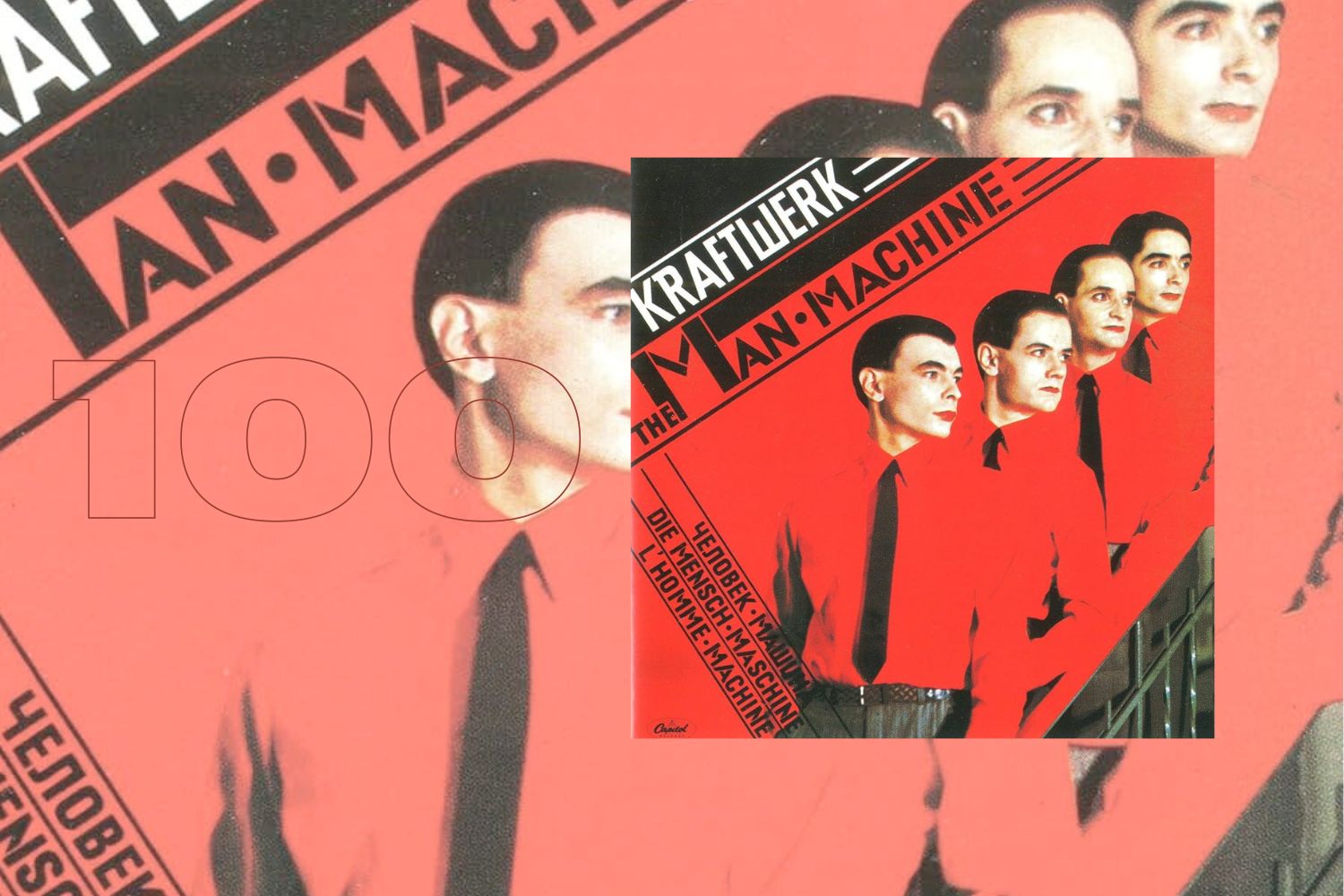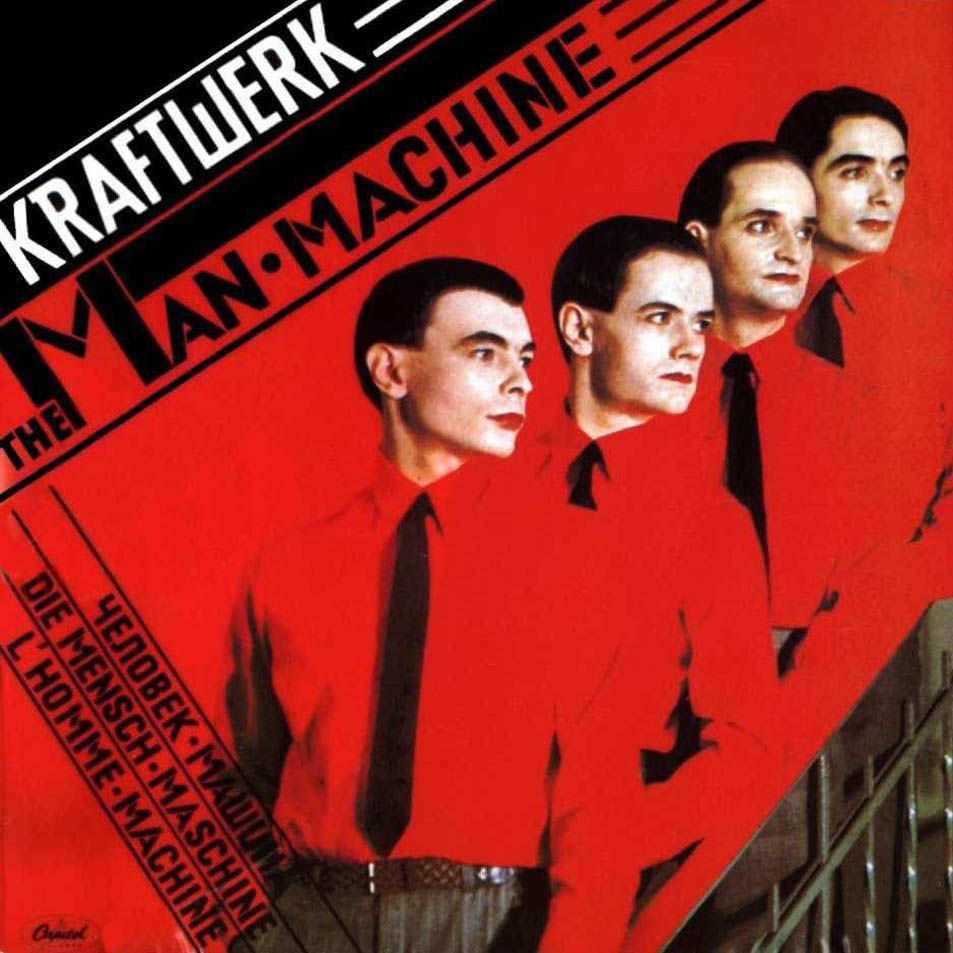The 20th and 21st centuries have done little to jar Germany from its calcified spot at the geographic and political heart of European upheaval. Well beyond and certainly reinforced by the horrors of World War II and Nazism, there’s an enduring perception of Germany as an emotionless automaton of a country. It built gleaming architecture embodying movements that lifted up brawn and brain over heart. It incubated Cold War espionage, a Soviet-influenced industry of spies and soldiers endlessly documented by John le Carré and satirized by Mike Myers. It grew to design things dedicated to efficiency, a national corporate image resting on things like strong brewed coffee, tireless people-moving, and cold, calculated pornography.
Postwar creators there would have to cross decades of artistic scorched earth before reaching historic German expressiveness and inspiration, monolithic as it was: stodgy classical music and opera, for example, or the base visuals of the Bauhaus. In the early 1970s, Dusseldorf band Kraftwerk were desperately trying to establish a new musical identity in the face of their homeland’s terrible recent associations and its older chapters of brutalist talent. Contemporary interviews found them lamenting the lack of any German parallel to subcultures inspired by the Black diaspora—these appeared in Europe as hard rock, ska, and more, but kept Germany at arm’s length.
Reflexively, Kraftwerk and their Krautrock peers embraced wild improvisation and hypnotizing electronics to modify or even ignore these new musical norms. In this vacuum, piecing together a subculture of their own, Kraftwerk’s vision of rock used fewer and fewer analog instruments as time passed. Once Radio-Activity came out in 1975, they had reached their peak form as a synth-pop quartet on tour and in the studio. This was two albums deep into a legendary five-LP series that explored the nature and consequences of man’s relationship with technology.
Three years later, on album number four, the quartet reached their arguable peak of both medium and message. The Man-Machine portrays a quick series of believable events: introducing listeners to robots, a trip to space, observations of human and city life upon return, before introducing listeners to robots who may be the same robots from the beginning or may be, shall we say, more developed.
The Man-Machine was powered by some of the same recent decisions on propulsive melody and lyrical mantras that allowed Donna Summer and Giorgio Moroder to change dance music’s game with “I Feel Love,” released as a single in July of 1977, relatively early in the life of Kraftwerk’s album. Every song on The Man-Machine would end up with vocals, a pop-music stretch the band hadn’t previously reached. Every groove on here nods heads at a minimum (the title track) and sways hips at a maximum (“The Robots”). And even hidden among the patterns in songs like “Neon Lights” are hints of solos and improvisation, meant for guitars or the band’s long-dormant flute, played instead on keyboards and drum machines.
A pair of songs on The Man-Machine suggest life in the modern city, arguably the album’s most “human” moments. “Neon Lights” is a soothing, whistling stroll through gleaming nightlife, businesses both open and closed, the shining signs beckoning you inside for immediate satisfaction or teasing at what’s behind locked doors and windows until the next morning. “The Model” gets even more personal and intimate—if not Kraftwerk’s first love song, it is their first to show direct admiration for another human being in the form of a ballad. Not everything is as it seems in Kraftwerk’s overbuilt world, however, and the cold lyrical point-of-view of a man falling for a famous model (and observing her vanity and vapidity) feels creepy and obsessive, a pop-music stalker’s tale predating “Every Breath You Take” by 5 years.
The quartet take us to orbit and back on “Spacelab” and “Metropolis,” respectively. Against those single repeated words, Kraftwerk developed mesmerizing melodic lines that give sound to the silent whoosh of stars and satellites, and an aural energy to the movement of people and things throughout cities—the revving engines that propel us, the steps our feet take. These titles referred to German contributions to science and pop culture, and the latter helps to give Kraftwerk entreé to continue their legacy of sociopolitical commentary, something their mother country still needed/deserved.
That one song’s namesake—the futuristic 1927 silent film Metropolis, made in Germany by Austrian-born Fritz Lang—had at the center of its story a construct called the Machine-Person, a symbolic unification of employer and employed, of humanity and technology. With its BPM waiting to be increased for the dancefloor 14 years later on The Mix, album opener “The Robots” is a grind in disguise as well as a double entendre on labor. ”We are programmed just to do/Anything you want us to” could be a robot quoting one of Asimov’s Laws to their operator, or a stunted worker addressing The Man.
At the opposite end of The Man-Machine, the title track elevates the scenario, the philosophy, and the perceived results of “The Robots.” In pursuit of his Third Reich, Hitler had lifted up and perverted the Nietzschean idea of the übermensch, turning an ideological superman or theoretically ideal human into a plan for a “master race.” Kraftwerk reclaim and lampoon his cruel folly for “The Man-Machine” and its album, inventing the überding: the super being, or more specifically the super thing. Their lowercase man-machine represents an ideal of human interaction with technology such that one could not be separated from the other.
The majority of The Man-Machine therefore surveys the evolution of (a.) connected users into ageless cyborgs and (b.) the society that supports and surrounds this. Kraftwerk were never strangers to irony: their name means “power plant” in German, lending a sly twist to the album Radio-Activity and its title track lamenting the tragedy of nuclear power gone awry. Kraftwerk would further explore the digitization of society in more realistic, almost cute fashion on 1981’s Computer World, looking at the expansion of electronic tools into everyday life. But the wryness of The Man-Machine is that it offers no overt critique—which itself might be a tacit critique, the device of satire through disbelieving omission. There’s no resistance even in a single song to the planet’s new robot overlords; Kraftwerk instead offer constant praise to technology as they exclusively use it to make their art.
Treble is supported by its patrons. Become a member of our Patreon, get access to subscriber benefits, and help an independent media outlet continue delivering articles like these.




Interested in fact based espionage and ungentlemanly officers and spies? Try reading Beyond Enkription. It is an enthralling unadulterated fact based autobiographical spy thriller and a super read as long as you don’t expect John le Carré’s delicate diction, sophisticated syntax and placid plots.
What is interesting is that this book is apparently mandatory reading in some countries’ intelligence agencies’ induction programs. Why? Maybe because the book has been heralded by those who should know as “being up there with My Silent War by Kim Philby and No Other Choice by George Blake”. Maybe because Bill Fairclough (the author) deviously dissects unusual topics, for example, by using real situations relating to how much agents are kept in the dark by their spy-masters and (surprisingly) vice versa.
The action is set in 1974 about a real British accountant who worked in Coopers & Lybrand (now PwC) in London, Nassau, Miami and Port au Prince. Simultaneously he unwittingly worked for MI6. In later books (when employed by Citicorp and Barclays) he knowingly worked for not only British Intelligence but also the CIA.
It’s a must read for espionage cognoscenti but do read some of the latest news articles in TheBurlingtonFiles website before plunging into Beyond Enkription. You’ll soon be immersed in a whole new world which you won’t want to exit.